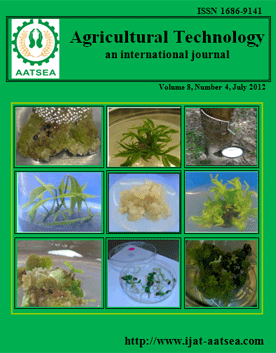ThaiScience
ThaiScience
INTERNATIONAL JOURNAL OF AGRICULTURAL TECHNOLOGY
Volume 17, No. 01, Month JANUARY, Year 2021, Pages 75 - 86
The structural model of a sustainable coffee - based agrotechnology parks development in bengkulu province, indonesia
Hamdan, H., Fauzi, A. M., Rusli, M. S. and Rustiadi, E.
Abstract Download PDF
Development of Science and Technology Parks (STP) is included in the Indonesia national development plans targeting 100 units during 2015-2019. Lack of understanding of the concept of technology parks causing the operation is not optimal. The influence of coffee-based agrotechnology parks (ATP) development factors in Kepahiang Regency was investigated. The obtained results by SEM pathways revealed variables with statistically significant effects, i.e., firstly, resource management strategies; secondly, social management strategies; thirdly, cooperation system strategies. These factors had a significant effect on ATP development. Resource management strategies and environmental management strategies had a significant effect on ATP development through cooperation system development. Identification of factors on the development of ATP and the relationship among factors are expected to help planners and decision-makers in strengthening development strategies of coffee agroindustry in the agrotechnology parks.
Keywords
Agrotechnology parks, Coffee, Structural equation model, SustainabilityINTERNATIONAL JOURNAL OF AGRICULTURAL TECHNOLOGY
Published by : Association of Agricultural Technology in Southeast Asia (AATSEA)
Contributions welcome at : http://www.ijat-aatsea.com
